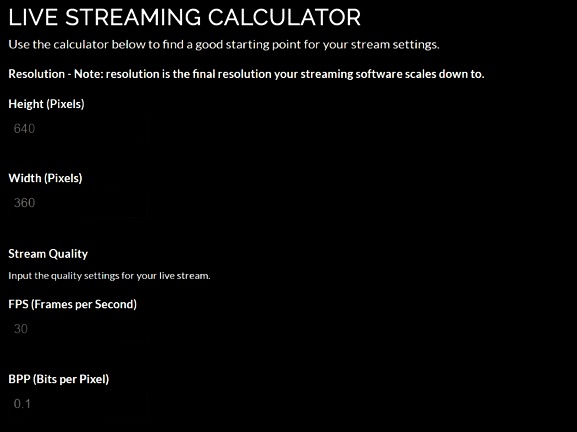Live streaming is a trend that is quickly becoming more and more popular. People use live streaming for various reasons, from gaming to concerts and sports events. Most streamers get confused about how much data they are using when streaming.
The amount of data a live stream uses depends on the quality of the video/audio being streamed. High-quality videos require more data than low-quality videos. The required Bandwidth depends on the platform used for streaming and other parameters like bitrate, codec, audience size, framerate, etc.
In this blog will discuss how much data you can expect to use for live streaming on popular platforms such as YouTube, Twitch, and Facebook. Let's dive in!
What is Bandwidth in Streaming?
In the simplest terms, bandwidth is the amount of data an internet connection can transmit from one point to another in a given period. For example, if your connection has a bandwidth of 1mbps, it can transfer 1 Megabit of data per second.
Bandwidth is important when streaming because it affects the quality of your live stream. If you don't have enough Bandwidth, the video/audio will be buffered or may not play.
How to Calculate the Required Bandwidth before Streaming?
The required Bandwidth of a live-streaming event varies depending on multiple variables such as codecs, bitrate, resolution, audience size, live-streaming duration, etc. Though the process is complex, the live streaming cost calculator makes it easier to calculate your live streaming bandwidth. Before starting streaming, it is essential to understand the required bandwidth for streaming. Different streaming platforms recommend different bandwidths, bitrates, and resolutions for streaming.
Does Live Streaming Bandwidth Require High Bandwidth?
The answer to this question is a resounding yes for anyone who has tried to live stream an event! A high bandwidth connection is essential for live streaming, as even a small amount of buffering can ruin the experience for viewers.
To provide a smooth, uninterrupted live stream, your connection must handle the large amount of real-time data transmitted. If you don't have a high bandwidth connection, you may find that your live stream is choppy or frequently buffers, which can be highly frustrating for viewers. Have a reliable and high-speed internet connection for live-streaming an event without any hitches.
Does Bandwidth affect the Live-streaming Experience?
When it comes to Livestream, Bandwidth is everything. A strong connection is essential for a smooth, lag-free experience. Without enough Bandwidth, the video will freeze, the audio will stutter, and you'll miss out on the action. So if you're wondering whether Bandwidth affects the live-streaming experience, the answer is a resounding yes! A good rule of thumb is to ensure you have at least 3Mbps Bandwidth for streaming. anything less than that, and you're likely to run into problems. So if you're planning on live-streaming your next big event, make sure you have a fast and reliable internet connection. Otherwise, you might end up with a frozen screen and many frustrated viewers.
How to Save Internet Bandwidth While Live Streaming?
There are several ways to save Bandwidth while streaming. Here are some of the best practices for optimizing your live-streaming experience:
• Lower the Resolution: Lowering the resolution of your stream will reduce the amount of data used. Note that lower resolutions make for a poorer viewing experience, so only lower the resolution if necessary.
• Use Adaptive Bitrate Streaming: Adaptive bitrate streaming adjusts the video quality to match the viewer's internet connection. This helps to reduce buffering and makes for a smoother viewing experience.
• Limit Audio Bit Rate: Lower the bit rate if you don't need high-quality audio. This will significantly reduce the amount of data used while streaming.
• Use Compression: Video compression can help reduce the file size of your stream, which in turn will reduce the amount of Bandwidth used.
• Use a Fast Connection: A fast, reliable internet connection is the key to live streaming success. Ensure you have enough Bandwidth for your event and a stable connection to avoid buffering and other streaming issues.
Following these tips can save internet bandwidth while live streaming and ensure that your viewers get the best streaming experience possible. Live streaming solutions are a great way to reach a broad audience, and following these tips will help you make the most of your event.
Conclusion
Live streaming your events is a great way to reach a large audience, but it's essential to understand the bandwidth requirements for a successful stream. Knowing how much data you're using and having a reliable, high-speed internet connection is essential for providing your viewers with a seamless streaming experience. So make sure you know the required Bandwidth for streaming on your chosen platform before you begin and always have a backup plan in case of technical issues. With that in mind, you'll be well


No comments yet